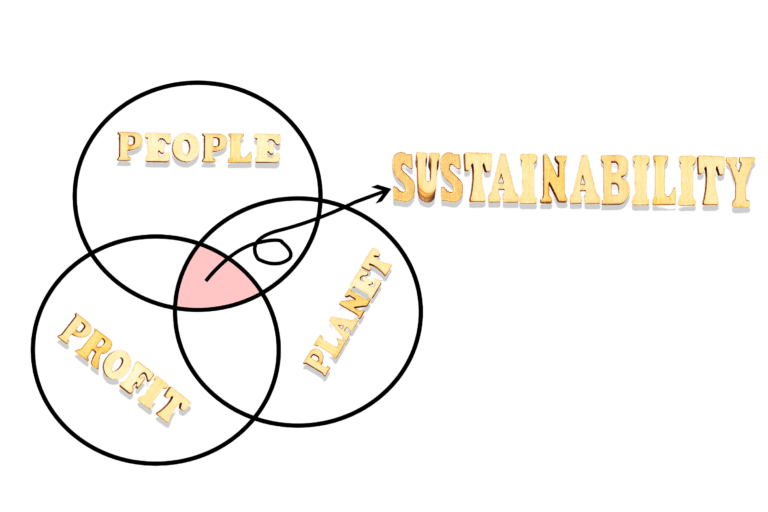
John Elkington first proposed the triple bottom line concept in the mid-1990s.
The idea was that by focusing on “people, planet, and profit,” businesses could be made profitable in a sustainable manner.
Elkington sought to influence corporate executives with his views and way of thinking.
He wanted business executives to find it simple to grasp that they needed to concentrate on all three areas since they are interdependent on each other.
Unfortunately, it’s a widespread misperception that sustainability is more expensive and as a result, many people now believe that sustainability is an expensive luxury that only a select few can afford.
In fact, quite the opposite is true.
Business continuity now depends on sustainability, and when a company adopts sustainability effectively, it not only reduces operating expenses but also opens up new opportunities for revenue growth and attracts partners and consumers that share the same values.
If you want to know what sustainability means, in 1987, the United Nations Brundtland Commission defined sustainability as “meeting the needs of the present without compromising the ability of future generations to meet their own needs.”
Did you know Sustainability can actually Lower costs?
By looking at things such as lowering ‘material use’ for example by getting rid of unnecessary packaging or reducing the distance between manufacturer and customer, your business can not only use resources more efficiently it can also lower costs!

Sustainability can also boost your business profile and brand value!
Millennials and Gen-Z are now the largest generations of consumers and they have a strong affinity for sustainability and social impact.
These two generations value the meaning and purpose of their purchase, in stark contrast to earlier generations who were more interested in material things.
This means that supporting a company or purchasing their goods becomes a way for them to show their support for causes they care about.
By giving your customers the ability to do this, you are creating a loyal and growing customer base.
Embracing sustainability puts businesses ahead of incoming legislation.
We are already seeing the start of sustainability legislation and whilst it is only the largest companies that currently have to comply, legislation is coming for all.
World governments have a target to reach Net Zero by 2050 and all industries will be impacted by future regulations codifying sustainability.
By adapting to sustainability early, businesses can reduce the disruption these changes will cause and save money in the long term.

Sustainability Increases collaborations and partnerships!
People who work in sustainability are renowned for their collaboration.
Change-makers within organizations frequently collaborate on issues like water stewardship and human rights, despite the fact that their companies are frequently rivals in the marketplace.
This means that promoting sustainability will result in new partnerships and cooperation with other stakeholders to accomplish more than one company could do by itself.
Being a leader in sustainability sends a powerful message to the market, attracting like-minded partners and creating new prospects.
In conclusion, sustainability has benefits for businesses and increases profits.
It aids in reducing operating expenses, boosting income, and generating new prospects through partnerships and collaborations.
There has never been a better time to embrace sustainability than right now, particularly given that the market, governments, and customers are all demanding it. Subscriptions to Play It Green start from just £60 per year.
Play It Green can help your business on its sustainable journey and you can take your first step by completing the more information form below: